Program
- AmCham reserves the right to change the speaking schedule without prior notice
- Free seating for all sessions on a first come, first served basis
- Registration and reception
- Speaker programs
- Lunch
- Speaker programs
- Local Schools vs International Schools: what is the right choice for my child?
Virginia Wilson•Elaine Cheung•Jenny WongParents panel
Hong Kong parents often face a constant dilemma over choosing the right education path for their children. Between the local system and the international school system, there are no easy choices as they involve different challenges and benefits – from teaching and learning style; quantity of homework and assessments; language skills to cultural diversity.
Join our parent sharing session to learn the challenges during the choosing process and enquire about the international school systems of their children, so to make informed decisions on the right path to take.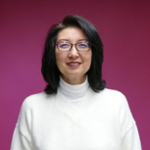
Virginia Wilson
Chief Operations Officer, Global at OneSky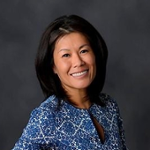
Elaine Cheung
Group CFO at Regal Springs AG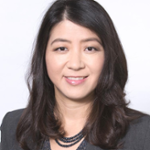
Jenny Wong
Executive Director, Public Policy, Asia Pacific of Time Warner Inc
- Future of Work: Perspective from the front line
Brian Yen•Jennifer Van Dale•Diana David•Dirk SchravenSenior leaders will reveal what they want in their future employees, and it's not what you think.

Brian Yen
Executive Director of MIT Hong Kong Innovation Node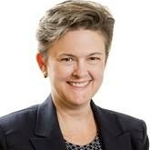
Jennifer Van Dale
Head of Asia Pacific Employment at Eversheds Sutherland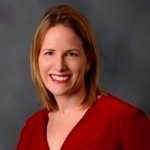
Diana David
INED, Da Vinci Labs Ltd; Regional Director, Executive Education, Financial Times (HK) Ltd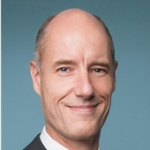
Dirk Schraven
Chief Executive Officer at Gleneagles Hong Kong Hospital
- ESF: An Education Worth Having from Kindergarten to Secondary
Christopher Coyle•Derek Pinchbeck•Stewart Redden•Julie WongThis seminar will be focusing on learning in ESF schools from kindergarten to secondary. The speaker(s) will share their insights into the IB Primary Years Programme (PYP), and how the ESF curriculum and approaches to learning help bring out the best in every student. ESF Admissions Manager, Julie Wong will then explain the application process and criteria.
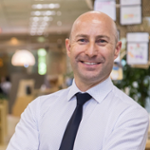
Christopher Coyle
Principal, ESF Wu Kai Sha International Kindergarten at English Schools Foundation (ESF)
Derek Pinchbeck
Learning and Teaching Adviser, Early Years and Primary at English Schools Foundation (ESF)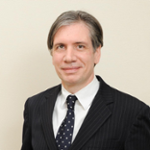
Stewart Redden
ESF Learning & Teaching Adviser (Post-16) at English Schools Foundation (ESF)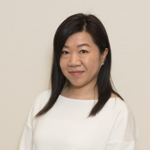
Julie Wong
Admissions Manager at English Schools Foundation (ESF)
- Harrow Hong Kong: The best of a British education, nurturing international minds
Ann Haydon•Annabel Davies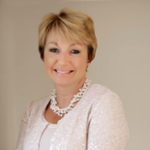
Ann Haydon
Head of School at Harrow International School Hong Kong
Annabel Davies
Principal Deputy Head (Curriculum) at Harrow International School Hong Kong
- ITS Education Asia: Important Interview and Admission Tips for the most popular schools
Anne MurphyParents panel
Today top private schools in Hong Kong can receive hundreds of applications, so the competition can seem as fierce as the Ivy League Colleges. It’s critical for parents to know which schools to pick, when to start applying, but most importantly what is involved during the interview process, how they can prepare their child and what are the expectations of teachers who assess the children. Learn ‘under the radar tips’ and receive first-hand knowledge from school search experts and parents.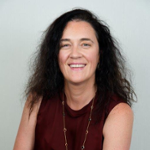
Anne Murphy
Director (School Advisory Services) of ITS Education Asia
- Benefits of Different High School Curricula in Preparing Students for University Application around the world
Gerry ChuParents panel
Students and parents are beginning to plan for, and have anxiety about, the university application process at a younger and younger age. In Hong Kong, with a wide variety of schools and curricula to choose from, the question often arises of how a specific curriculum, (IB Diploma, A-Levels, AP, DSE, etc.) will help prepare them for university applications. Apply Ivy, a leading admissions consulting firm in Hong Kong, will be moderating a panel of parents whose children have been through this process, to discuss the benefits of the curriculum they chose, what they wish they had known when their children were younger, and advice to share with parents thinking about their children’s future university careers.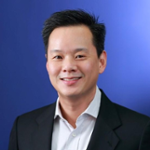
Gerry Chu
Director of Apply Ivy
- Hong Kong International School: It Takes a Village • a dialogue with the HKIS Community
Vicky Seehafer•Karena Belin•Justin Lui•Todd HollettHear from HKIS Director of Admissions in conversation with members of the HKIS community--a parent, an alumnus, a teacher and a current student. What goes into deciding on a school to send your children? How do you raise creative, collaborative and resilient kids? How does a strong community contribute to success of your child’s education beyond excellent academics? Sometimes it takes a village that is rooted in tradition and strong core values to face the challenges that our children will face in the future.
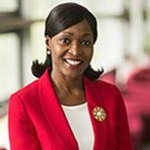
Vicky Seehafer
Director of Admissions at Hong Kong International School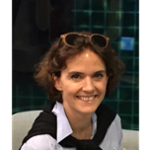
Karena Belin
President, Parent-Faculty Organization at Hong Kong International School
Justin Lui
Alumni, Class of 2004 at Hong Kong International School
Todd Hollett
Upper Primary Technology Coach at Hong Kong International School
- Facts and Myths about Special Needs Education in Hong Kong
Yvonne BecherEncountering a child with special educational needs (SEN) is no longer unusual – many classrooms have at least one. How are primary schools in Hong Kong adapting to the increase in variety of learning styles, social-emotional needs and behavioral profiles? Case studies from local and international school reveals many facets about SEN provision in terms of quantity and quality. Let’s investigate what is working well and where change is still needed.
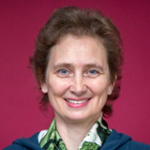
Yvonne Becher
Acting Chief Executive / Director, Programme Development & Learning of The Child Development Centre
- Malvern: Can You Teach Right and Wrong • how to help your child make good decisions?
Robin ListerIs there a way in which children can be given a moral compass – without simply telling them what is right and wrong? Can we as parents and teachers encourage children to make their own minds up about morality, or is this simply too risky? How can we look after our children to ensure that they make the right decisions without forcing those decisions on them? Indeed, if we resort to simply telling them what is right and wrong, this provides the perfect base for normal teenage rebellion. But if we provide opportunities for structured questioning and the careful analysis of moral dilemmas, teaching about consequences and different ways of moral reasoning – this may provide a longer lasting and more secure way of ensuring our children are able to make good decisions. And if we do this whilst understanding a little about child and teenage moral development – in other words, understanding how brains work at that age – then we can provide our children with the best possible foundation for the difficult decision they may need to face in the future.

Robin Lister
Founding Headmaster at Malvern College Hong Kong
- International Montessori School: Montessori & Brain Development • Success in Learning & Life
Anne SawyerThe importance of the brain’s Executive Functions (self-regulation) has become a topic of great interest recently, as recent Longitudinal research has turned developmental psychology on its head: showing that strong Executive Functions at age 4 are a more important predictor of positive life outcomes than intelligence, parent income, and education.
An authentic - bilingual - Montessori environment encourages effective brain development of the Executive Functions at each level (Toddler through Adolescence) - building strong foundations for learning, creating, and success in life.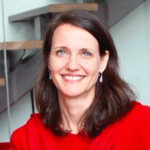
Anne Sawyer
Co-founder of International Montessori School-an IMEF
- Australian International School (AISHK)
David Shirley•Howard West•Lynette Wong•Mandy MansbridgeAISHK follows the Australian National Curriculum, and in the senior secondary years offers students the choice to undertake either the International Baccalaureate Diploma (IBDP) or NSW Higher School Certificate (NSW HSC). Whilst academic rigour and achievement is of importance, our school also realises the increasing pressures faced by young people in a rapidly changing world. Join us as we share how AISHK educates the whole student through Positive Education to ensure wellbeing is an integral part of life at school and beyond. AISHK is passionate about providing a holistic education which sees students flourish into well-rounded, globally-minded and responsible individuals.
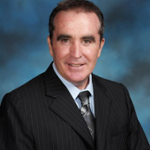
David Shirley
Head of Primary at Australian International School HK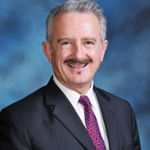
Howard West
Head of Secondary at Australian International School HK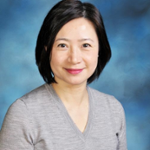
Lynette Wong
Head of Admissions at Australian International School HK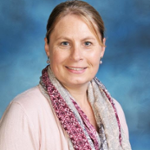
Mandy Mansbridge
Admissions Officer at Australian International School HK
- ISF: Yin & Yang • How a Bi-cultural Education Benefits Middle School Students
Mark Jobling•Liu YuISF Academy aims to go beyond offering a bilingual (English/ Putonghua) education. With our values rooted in Chinese culture, our mission is to instil this character in our students, together with the mindset and attitude of truly global citizens. Join us as we discuss how, as Middle School Principals, we implement a code of ethics and utilise an ambitious, international curriculum and staff to achieve this.
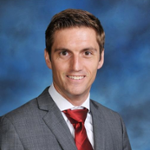
Mark Jobling
Assistant Principal at The ISF Academy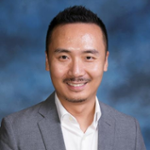
Liu Yu
Assistant Principal at The ISF Academy
- French International School: Bilingualism in Action
Ian ClaytonThe ability to communicate in more than one language is an increasingly attractive prospect and fostering bilingualism in students is central to the new pedagogical approach which will be implemented in Primary at the French International School of Hong Kong (FIS) from September 2018. At FIS there are two streams: the French Stream following the French National Curriculum and the International Stream following the English National Curriculum. This early focus on bilingualism aims to create a naturally bilingual environment where students can switch effortlessly between English and French.
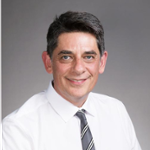
Ian Clayton
Head of International Stream at French International School
- Kellett School: A Kellett Education
Ann McDonaldIntroducing the Kellett Learner Profile and how it underpins a quality learning experience for students aged 4 – 18.
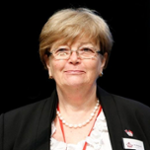
Ann McDonald
Principal at Kellett School, The British International School in Hong Kong
- Stamford American School: Balancing an Innovative Curriculum with Core Skills
Karrie DietzParents often wonder how innovative education can help support their children's future in a changing world but often worry if innovative education comes at a cost to a child's core skills. This panel led by Stamford American Head of School, Karrie Dietz and Stamford's faculty and students will explore how schools can successfully blend both innovative and "Traditional" learning to provide the best outcome for students.
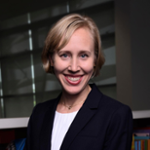
Karrie Dietz
Head of School at Stamford American School
- Nord Anglia International School: STEAMing Ahead • how students show us our future
Brian CooklinOur emphasis on Science, Technology, Art and Design and Maths through our collaboration with M.I.T., encourages out students to think of creative, practical and solutions to the world’s problems. From dealing with the plastic ocean problem to Hong Kong’s air and water pollution, our students are looking for answers.
Come and hear their ideas and how they have applied their knowledge so far in our Makerspace with the technology available like robotics, VR and AR headsets.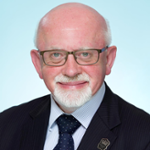
Brian Cooklin
Principal at Nord Anglia International School, Hong Kong
- Yew Chung: Learning Spaces and Going Places • Flexible Classrooms and Global Leadership; Preparing Your Child for the 21st Century
Cecille NazarenoThe new Learning Communities space is all about creating a community, breaking down barriers, opening up the classroom and prepare each child for the 21st Century. This new concept allows the teachers students relationship to blossom through meaningful engagement in flexible spaces that provide a variety of areas to accommodate different learning styles.
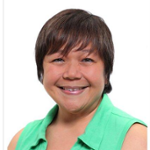
Cecille Nazareno
Team Leader, YCIS - Secondary at Yew Chung Education Foundation Limited
- Shrewsbury International School Hong Kong: Tradition and Innovation
Ben KeelingLed by Ben Keeling, Principal at Shrewsbury International School Hong Kong, this presentation will explore the relationship between tradition and innovation in an educational context. Drawing upon almost 500 years of proud heritage and experience, Shrewsbury prides itself upon its reputation for an innovative and creative thematic programme, founded upon the rigour of the British National Curriculum.
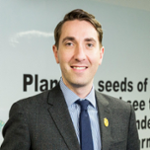
Ben Keeling
Principal at Shrewsbury International School Hong Kong
- Island Christian Academy: Investing in the Well-being of Students and Parents
Gail MaidmentFrom its beginnings over 30 years ago, Generations has conducted parenting courses aiming to strengthen school-home partnerships.
The OECD reported in 2013 that parents who participate in parenting courses “feel more secure in interactions with their children, boost their sense of well-being and benefit their children.”
In this panel discussion we will highlight several of the parenting courses run at Generations schools. Dr Gerald Lui will share about the Connecting with Kids emotion coaching course held at Island Christian Academy, and Mrs Tess Baguio, Principal of Small World Christian Kindergarten, will share about the First Steps family enrichment programme and Family Visioning Workshop. Gail Maidment, Executive Director of Generations, will moderate panel discussions.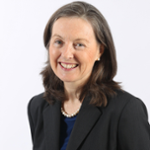
Gail Maidment
Executive Director of Generations Christian Education
- International School of Nanshan Shenzhen: Forging a Community through Education
Gloria CarnevaleGloria’s presentation will highlight how she has engaged and leveraged the Shenzhen community through art and brought real-life experience back to her students. As part of this presentation, Gloria will also be talking about the integration of immersive technology in the classroom.
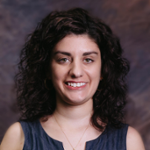
Gloria Carnevale
Head of Arts and Design at International School of Nanshan Shenzhen
- How the Future Informs the Revolution in Education
Jadis Blurton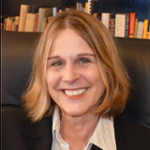
Jadis Blurton
Head of School at The Harbour School